The write stuff
Writer-in-residence gives new writers feedback and advice
Advertisement
Read this article for free:
or
Already have an account? Log in here »
To continue reading, please subscribe:
Monthly Digital Subscription
$1 per week for 24 weeks*
- Enjoy unlimited reading on winnipegfreepress.com
- Read the E-Edition, our digital replica newspaper
- Access News Break, our award-winning app
- Play interactive puzzles
*Billed as $4.00 plus GST every four weeks. After 24 weeks, price increases to the regular rate of $19.95 plus GST every four weeks. Offer available to new and qualified returning subscribers only. Cancel any time.
Monthly Digital Subscription
$4.99/week*
- Enjoy unlimited reading on winnipegfreepress.com
- Read the E-Edition, our digital replica newspaper
- Access News Break, our award-winning app
- Play interactive puzzles
*Billed as $19.95 plus GST every four weeks. Cancel any time.
To continue reading, please subscribe:
Add Free Press access to your Brandon Sun subscription for only an additional
$1 for the first 4 weeks*
*Your next subscription payment will increase by $1.00 and you will be charged $16.99 plus GST for four weeks. After four weeks, your payment will increase to $23.99 plus GST every four weeks.
Read unlimited articles for free today:
or
Already have an account? Log in here »
Hey there, time traveller!
This article was published 27/01/2019 (2552 days ago), so information in it may no longer be current.
Jordan Wheeler spends seven hours a day at the Millennium Library, and unsurprisingly, does a lot of reading.
But Wheeler’s not busy perusing the latest bestsellers. Instead of parsing published works, he’s reading manuscripts by new and emerging Manitoba writers.
Wheeler — a published author and television scriptwriter — is the Winnipeg Public Library’s writer-in-residence. Anyone in the province can mail or drop off their manuscripts and get his feedback, free of charge.
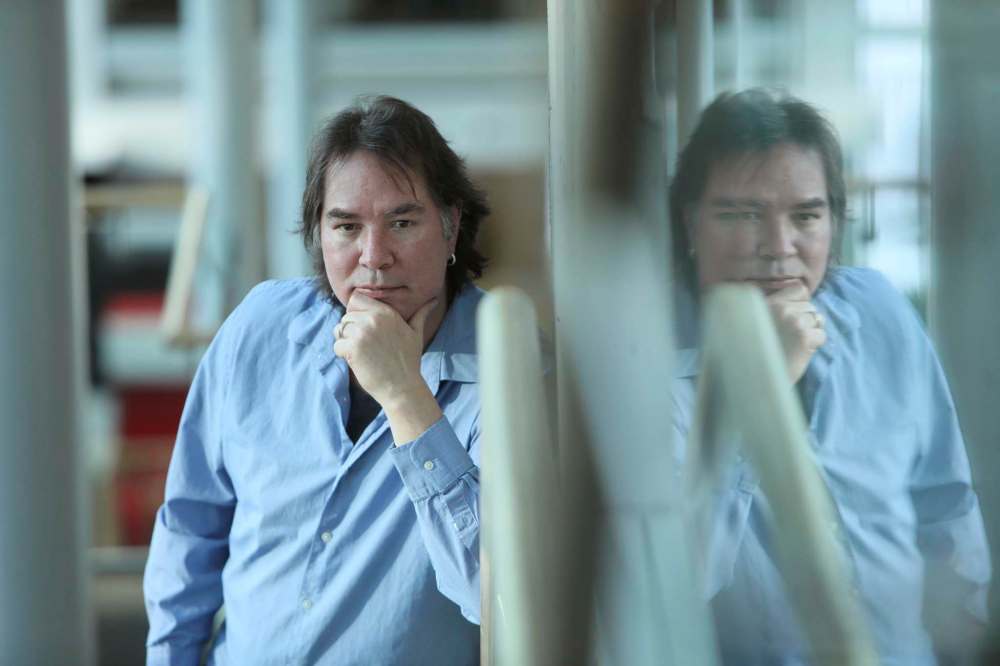
“It’s a way of continuing giving back to emerging writers, helping writers,” Wheeler says from the second-floor office that acts as his base of operations. “There’s always that responsibility to help people up the chain. But also, it’s a prestigious position. It’s a good feather in the cap.”
Wheeler isn’t the library’s first writer-in-residence. Since 1985, a long line of noted novelists, poets, playwrights and songwriters have filled the position, including David Bergen, Joan Thomas, Christine Fellows and John K. Samson.
“It’s really just one of the ways the library wants to support the literary community in the province,” says Reader Services head librarian Danielle Pilon.

“It’s certainly been very valuable for the writing community as a whole,” she continues, citing many examples of now-published authors who return and praise previous writers-in-residence for helping them.
“We always look for people who have a lot of mentoring or editing experience… they need to be comfortable helping writers develop one-on-one, whether that’s editing their work or talking to them in person. It also helps if they have a broad range of genre experience, which Jordan certainly did.”
Indeed, Wheeler has had a successful and varied writing career dating back to the early 80s.
Wheeler, a member of George Gordon First Nation, has published a number of books, including Just a Walk, a children’s book, and Brothers in Arms, a collection of three novellas depicting Indigenous experiences.
He also has an extensive background as a scriptwriter, having worked on North of 60, a CBC television drama set in the Northwest Territories; Renegadepress.com, a teen drama about a group of friends and their e-zine that aired on APTN (for which he won a Gemini award); and most recently, Arctic Air, a CBC drama following a Yellowknife-based airline.
Now, he’s channeling his experiences to help new writers learn, grow, and improve their craft. He pores over manuscripts, providing detailed, substantive feedback.
The technical limit for submissions is 15 pages of prose or six works of poetry — although Wheeler readily admits he won’t stop reading if a piece runs long.
“I’m probably a little too hands-on,” Wheeler says. “I write in (the margins) editing everything from typos to the overall shape of the story, so I give quite a bit of feedback.”
After reviewing a person’s work, which can take up to half a workday, Wheeler sets up an in-person meeting to go over every page, which can take another two hours or more.
Providing honest feedback without being too harsh or discouraging takes a special touch, Wheeler says.

“You kind of feel it out, see how willing and open people are to your suggestions,” Wheeler says. “The umbilical cord must be severed between (the writer) and the work. Once you’re done… it’s a product everybody wants to make better.
“When you get critiqued it still feels like a dagger in the heart, in the gut, in all the tender spots,” he continues, making stabbing gestures toward his torso. “But at some point, they become scratches instead of mortal wounds.”
Roughly half of Wheeler’s time is spent working with authors, whom he sends away with a friendly command: “Thou shalt rewrite.”
But there’s another purpose for the writer-in-residence program, Pilon says.
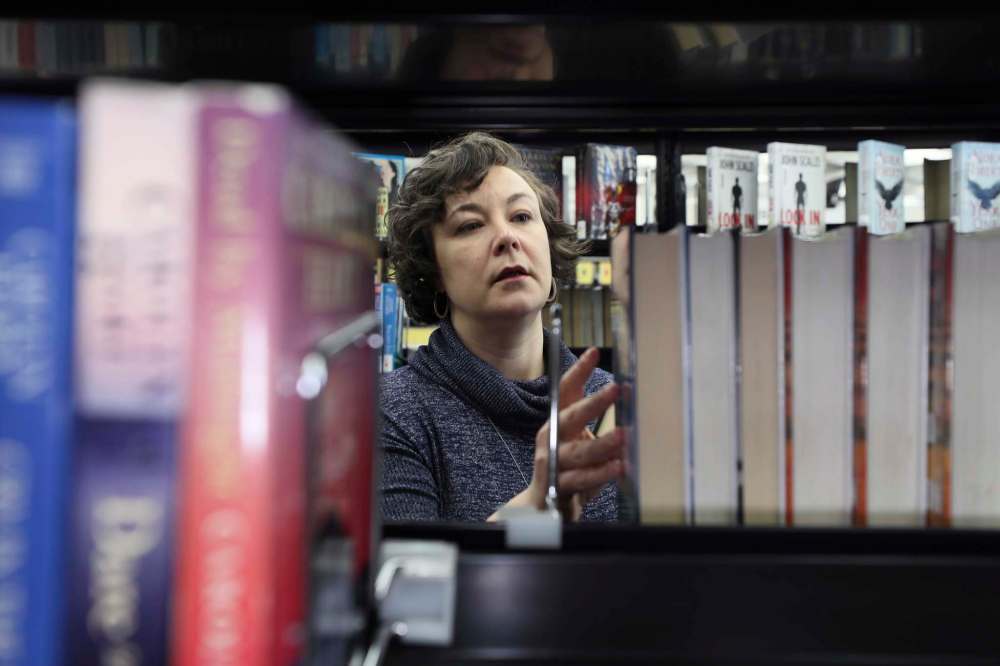
“They (the writer-in-residence) are here to work on a project of their own,” she says. “So, we’re encouraging literary creation in that way. We’ve definitely had award-winning books and other materials created, or at least partially created, in that office.”
Wheeler is working on a pair of projects, both of which attempt to counter Indigenous stereotypes.
The first is a script for a feature film tentatively titled “Children of the Earth.” Colourful cue cards, impeccably organized on a large bulletin board, map out the scenes and plot points.
Wheeler gets amped up when talking about his projects. His words spill out quickly, excitedly, and his gestures become so animated his arm motions create a perceptible breeze.
Without spoiling too much, “Children of the Earth” is the story of an Indigenous man who returns to his reserve to develop a golf course, only to uncover mass graves and a host of paranormal horrors.

The other project is more personal: a novel recounting the lives of his mother, Bernelda Wheeler, and aunt, Marji Pratt-Pawis. Their lives took them from Churchill to New York City and many places in between.
“They were best friends, even though they were siblings,” Wheeler says.
The novel recounts, among other stories, how the “shy” Brenelda became a Churchill radio personality in the 1950s — the “sexy evening voice for 15,000 horny young men,” Wheeler says.
It also covers Marji’s glamorous life as a fashion model in New York — where she was known as Carla Blakey — that abruptly ended when her back was broken in a car wreck, and the two sisters’ involvement with the American Indian Movement and the Wounded Knee occupation.
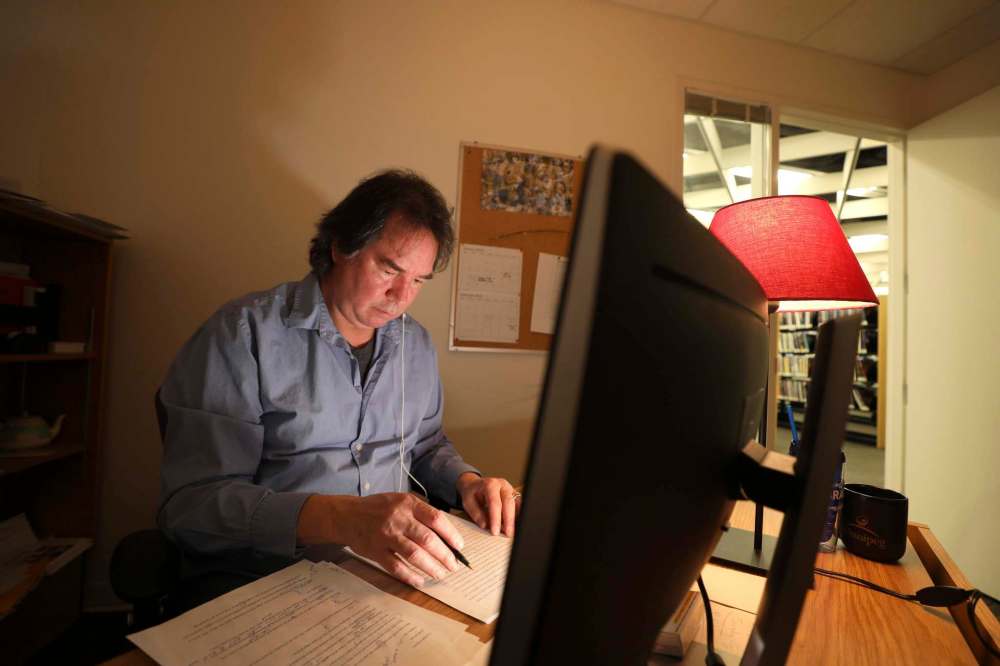
“It’s a way to honour my mother and honour my aunt, because no one else is going to do it,” he says. “It’s building on the power and the strength of the female voice.”
Wheeler says female voices are paramount in Indigenous communities, which, historically, have often been matrilineal rather than patriarchal.
“The backbone (of the novel), the theme, is resistance… Indigenous woman’s resistance,” Wheeler continues. “The tragic irony is that (Brenelda and Marji) helped people all through their lives, they helped other people heal. They were never able to heal themselves.”
Wheeler says his stint as a writer-in-residence makes up for the “lingering regret” he’s felt since the early ’90s when he turned down a similar position in the Yukon.
One of the most important lessons Wheeler tries to pass on to new writers is how to get their audience to emotionally connect and identify with their protagonist.
“There’s three simple means of creating that identification,” he says. “It’s through sympathy, likeability, and jeopardy. Bambi opens with mom getting killed. Right away our hearts are bleeding for this poor little fawn.
“The Godfather — they’re all bad guys, but they have one common value: loyalty to the family. The audience will always search for the centre of good. The audience can understand that loyalty, that value of loyalty to the family.”
His advice for getting started, however, is much simpler.
“Seat of the pants to the seat of the chair,” he says. “That’s number one.”
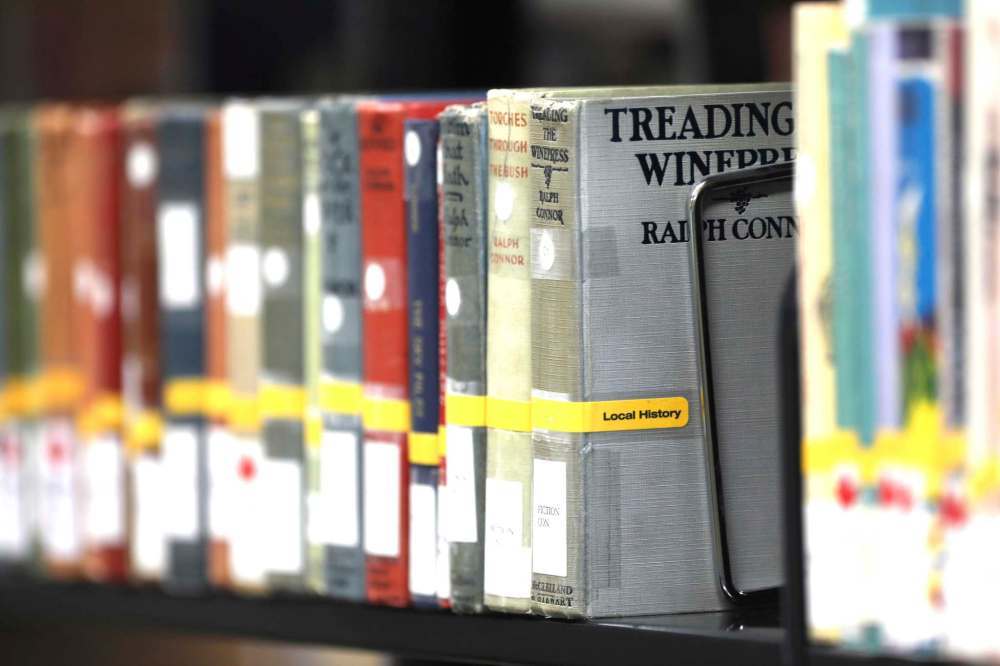
Wheeler says people are generally grateful for his feedback and he values his position. There’s another perk that doesn’t hurt, either.
“It’s a short walk to the hockey games,” he laughs. Bell MTS Place, the home of the Winnipeg Jets, is right across the street.
Wheeler’s term ends April 30. Come October, the library will select a new writer-in-residence.
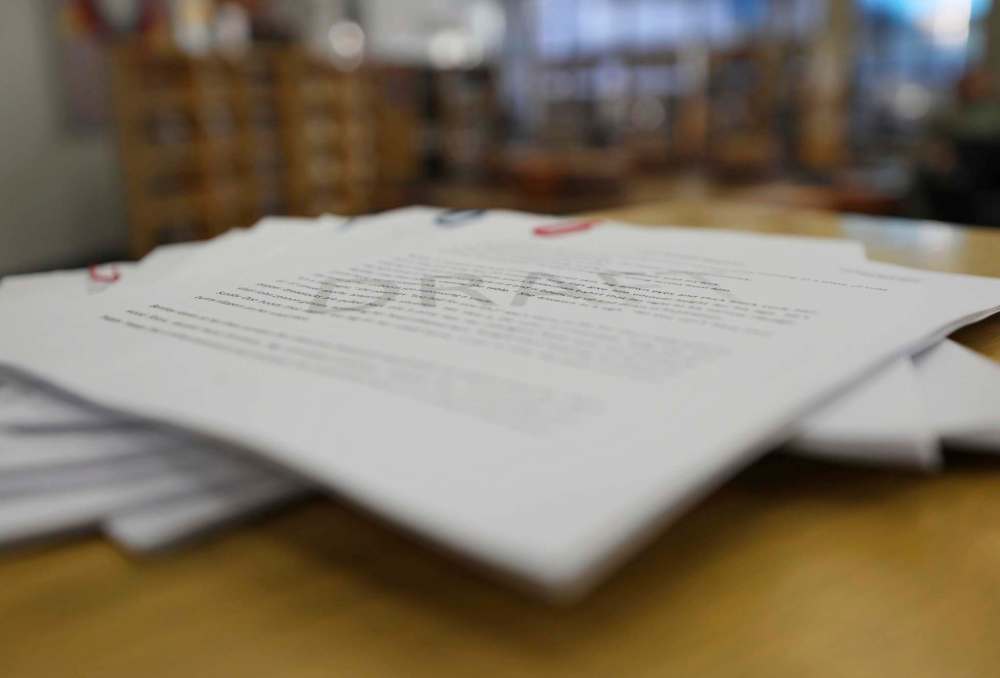
“I think of it as we’re sort of the gardeners, planting seeds,” Pilon says. “Some of them will grow, some of them might not, but encouraging new writers is always a positive.
“Even if someone never publishes… they just want to share with their family or something like that, I think more writers, of any kind in the community, is probably a net good.”


